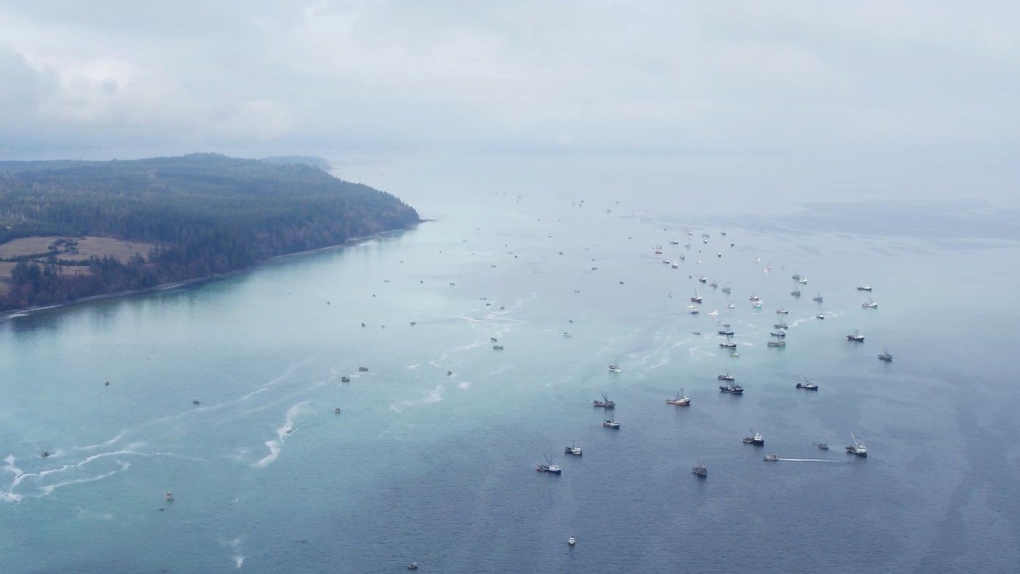
Residents of Union Bay, a small community on Vancouver Island, are expressing concern over the lack of regulations surrounding boat-dismantling operations. The Concerned Citizens of Baynes Sound, a local organization, hosted a rally over the weekend to protest against Deep Water Recovery, a company that has been dismantling barges at a Union Bay site for the last two years. There is fear among local residents that the operation may release hydrocarbons, raw sewage, and cadmium into the marine environment. The community is also concerned about the lack of specific rules preventing boat-dismantling on the shores of nearby Baynes Sound.
Shipbreaking is considered hazardous because of the toxic substances present within a vessel, which may include asbestos, heavy metals, and hydrocarbons. The lack of federal rules specifically regulating shipbreaking in Canada is alarming, as it may lead to pollutants leaking into Canadian waters. The B.C. Ministry of Environment says that Deep Water has the necessary permits as a company operating in the “commercial waste management or waste disposal industry.”
Union Bay resident and rally organizer Ray Rewcastle estimated that about 200 people attended Sunday’s rally. The community was shocked to learn about the lack of regulation on boat dismantling. The residents are also concerned that municipal, provincial, and federal governments had little understanding about shipbreaking as an industry before residents spoke up. Shipbreaking should be done in an industrial port like the Port of Vancouver, Esquimalt or Nanaimo, with 100% containment with dry docking.
Courtenay-Alberni NDP MP Gord Johns, who represents Union Bay federally, said that Ottawa is holding consultations until the fall on improving Canada’s shipbreaking laws. Johns said it is crucial that such laws are put in place as soon as possible, since what happened at Union Bay can happen elsewhere in the country if nothing changes. He also criticized the federal government for not doing enough on other fronts, such as only requiring a self-reporting, voluntary certificate for hazardous material entering Canada on foreign vessels.
The B.C. Ministry of Environment issued a statement saying it has issued three warnings and one advisory against Deep Water after site visits and water sample analysis, including discharging waste into the environment without authorization. In January, the province also ordered Deep Water to set up a monthly monitoring and sampling plan, and the submitted data is currently under review. If required, the ministry will take further enforcement action to ensure compliance, including pollution prevention orders.